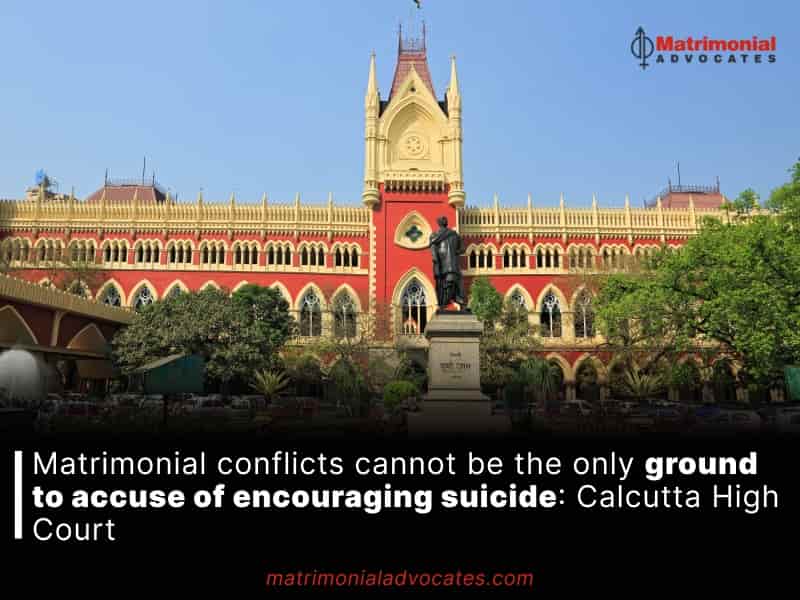
Justice Rai Chattopadhyay, a single-judge of the court, acquitted a man and his mother who had been found guilty by the trial court of abetting the suicide of the man’s wife and subjecting her to dowry-related harassment.
In the case of Goutam Gope vs State of West Bengal, the Calcutta High Court ruled that the mere existence of marital discord between a husband and wife could not be sufficient grounds for holding the husband responsible for abetting his wife’s suicide. As a result, Justice Rai Chattopadhyay, the single judge presiding over the case, acquitted the man and his mother, who had previously been found guilty by a trial court of charges related to abetting suicide (under Section 306 of the Indian Penal Code) and cruelty (under Section 498A of the Indian Penal Code) against the wife.
The Calcutta High Court has stated that for a charge under section 498A of the Indian Penal Code, the allegations of cruelty should be serious enough to establish that it led the victim to commit suicide. In the case at hand, there was no such compelling evidence to prove the guilt of the accused persons. The court emphasized that mere marital discord cannot be the sole reason to convict the husband for abetting suicide. Unless there is clear and incriminating evidence against the accused, such as specific intention, overt act, and direct incitement, matrimonial discord cannot be weighed with such gravity as to drive someone to commit suicide. The prosecution failed to establish these necessary elements in the present trial. Therefore, the court acquitted the accused.
Goutam Gope and his mother had appealed against their conviction by a trial court in August 2011. The case related to the death of Gope’s wife in August 2008, who had allegedly set herself on fire due to mental and physical torture inflicted by her husband and mother-in-law for illegal demands of furniture, a color TV, a motorbike, and cash. The trial court had noted that there was no dying declaration on record and convicted the appellants on the basis that they had not attempted to save the deceased. However, the court of appeal noted that there was no material on record to prove that the appellants had driven the deceased to commit suicide and that mere matrimonial discord cannot be a ground for conviction of abetment of suicide. Therefore, the court acquitted the appellants.
After being convicted by the trial court, the convicts filed an appeal to the High Court where they argued that the fire that led to the victim’s death was accidental, and that the victim’s father had filed the case out of revenge for their refusal to transfer properties to the victim’s child. However, the High Court bench noted that simply mentioning the victim’s allegations of torture by the appellants does not qualify as abetment of suicide unless it can be proven that the suicide was a direct result of the appellants’ actions.
The bench observed that it is now well-established that the victim’s reaction to the accused’s alleged acts may depend on the mental strength and stability of the victim. Unless it is proven that the victim was so oppressed that she had no choice but to commit suicide, the accused cannot be directly held liable. The bench held that this was not the case here and that the trial court had based its ruling on a mistaken interpretation of the evidence. As a result, the conviction order was quashed.
Source: https://www.barandbench.com/news/matrimonial-discord-cannot-sole-ground-attract-offence-abetment-of-suicide-calcutta-high-court





